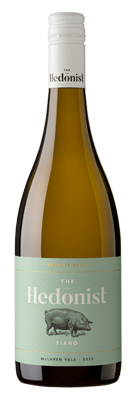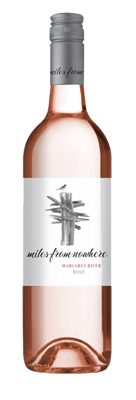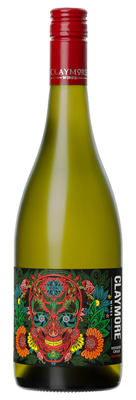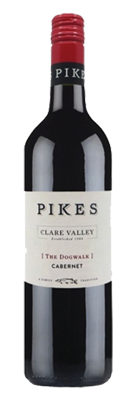Filter by
- 94pt elegant Clare Riesling – "a wonderful wine to kick start a party" (WinePilot).$24.00 RRPfrom $18.99 when you mix 12+
- A gorgeous, moreish frequent Gold-winning blend from the Pig family, with Gold again!$24.00 RRPfrom $13.99 when you mix 12+
- Silky Sicilian Nero d'Avola Cabernet barrel-matured blend with cherry and smoky tobacco.$38.00 RRPfrom $29.99 when you mix 12+
- A silky hand-crafted Tempranillo Graciano cleanskin from a secret source in cool-climate Hilltops.$35.00 RRPfrom $27.99 when you mix 12+
- 94pt, Great Value Fiano “Refreshing and engaging. Very good.”(Halliday) from a McLaren Vale veteran.$28.00 RRPfrom $26.99 when you mix 12+
- 92pt Chardonnay from WA’s remote Great Southern, of “power & presence” (Halliday)$35.00 RRPfrom $29.99 when you mix 12+
- A brooding, deep, dark Cabernet Sauvignon from McLaren Vale.$22.00 RRPfrom $17.99 when you mix 12+
- A refreshing, easy drinking and exceptional value Margaret River rosé.$22.00 RRPfrom $15.99 when you mix 12+
- 95pt organic Chardonnay from Mudgee’s Vinifera, "a beacon in the region..." (Halliday).$40.00 RRPfrom $35.99 when you mix 12+
- Small batch Adelaide Hills Pinot Grigio made by the vastly experienced Ben Riggs.$25.00 RRPfrom $19.99 when you mix 12+
- "Long and refined" (Wine Orbit), 94pt Chardonnay from the dynamic and colourful Claymore team.$24.00 RRPfrom $18.99 when you mix 12+
- This small-batch McLaren Vale Shiraz is so good! No surprise it's won Gold already!$35.00 RRPfrom $29.99 when you mix 12+
- 93pt Clare Cab: "Easy drinking, charming, fresh-feeling... cracking drink for the bucks" (Halliday).$26.00 RRPfrom $23.99 when you mix 12+
- "Outstanding vlaue" Cabernet with scores of 92 and 95pts.$22.00 RRPfrom $19.99 when you mix 12+
- "Generous" Cabernet from Trophy-winning Dandelion, with Platinum, Multiple Golds and high scores!$30.00 RRPfrom $23.99 when you mix 12+
- A silky, bright Barbera red full of dark cherry fruit from Italy’s prized Piedmont region.$30.00 RRPfrom $21.99 when you mix 12+
- Thrillingly fresh and zesty SSB from one of Australia’s oldest family wineries.$18.00 RRPfrom $12.99 when you mix 12+
- Triple Gold, 92pt Aussie classic blend from the dynamic Zonte's Footstep team.$30.00 RRPfrom $19.99 when you mix 12+
- Primitivo hero grape of Puglia is rich and fruity, and the velvety ‘Black Poppy’ is hugely popular.$25.00 RRPfrom $17.99 when you mix 12+
- Gold, 95pt McLaren Vale Shiraz beauty with high scores aplenty –"fabulously drinkable.” (Wine Orbit)$55.00 RRPfrom $49.99 when you mix 12+
- A beautifully crafted classic Hunter Semillon from a master of the art!$25.00 RRP$20.99 when you mix 12+
- Latest vintage of 95pt, Gold “cracking wine… everything you could want from a Prosecco” (Winepilot)$25.00 RRPfrom $18.99 when you mix 12+
- “Absolutely delightful” (WinePilot) 95pt flagship Reserve Shiraz from Clare Valley’s terrific Pikes.$75.00 RRPfrom $71.99 when you mix 12+
- 91pt, Great Value Langhorne Creek Cab Merlot combo “Remarkable quality at this price” (Halliday).$20.00 RRPfrom $16.99 when you mix 12+





























